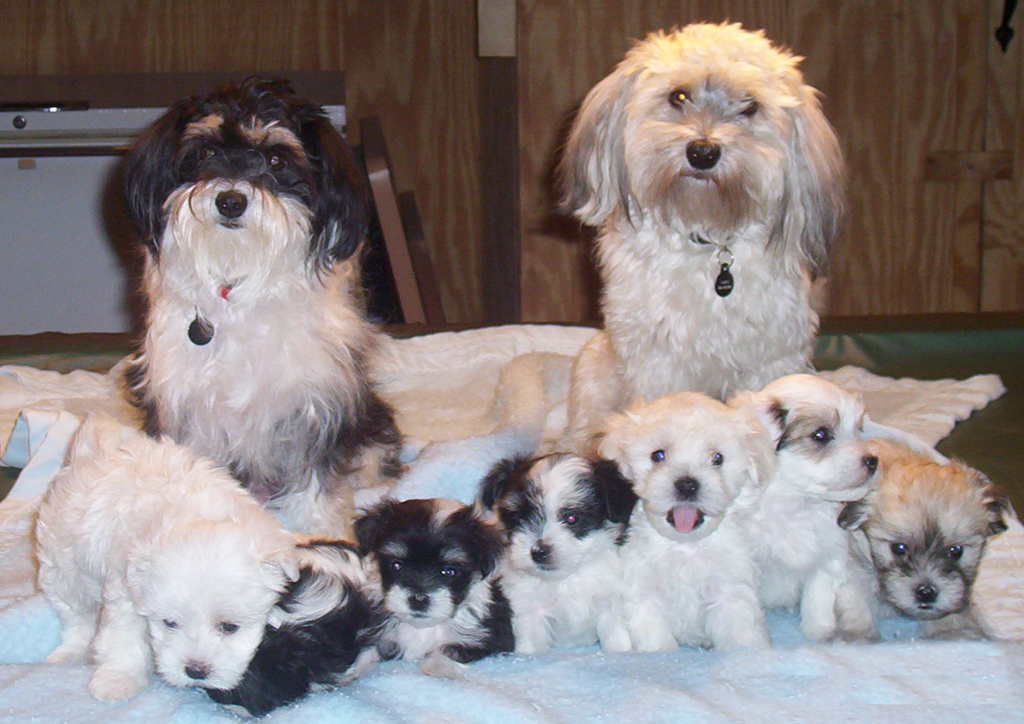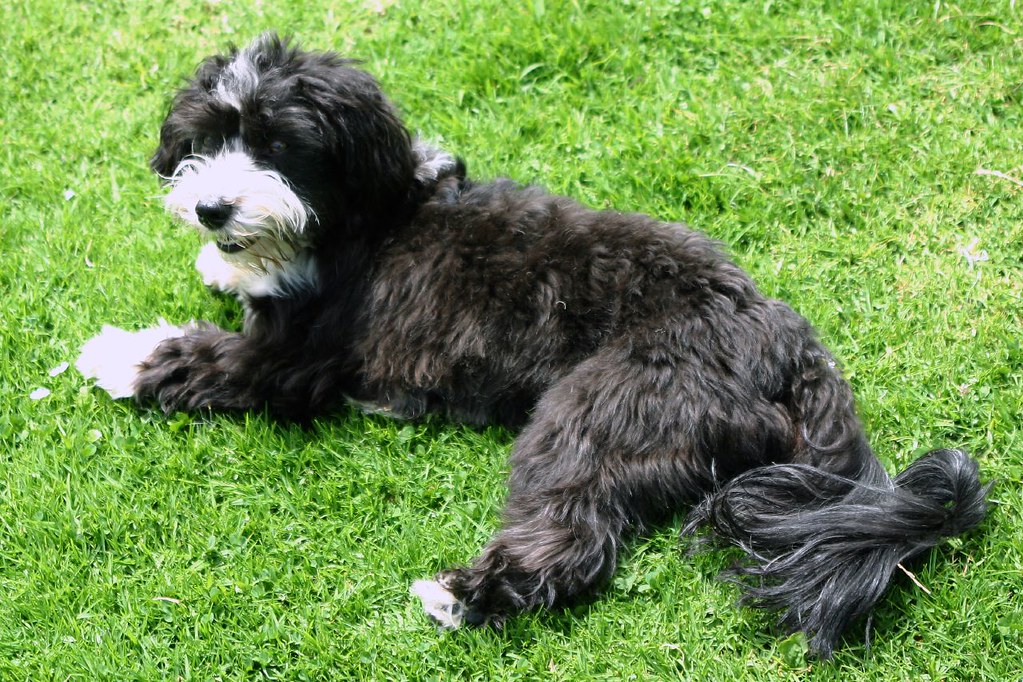In an era where the quill is traded for the keyboard, the Havanese, hailing from the vibrant streets of Cuba, stands as a timeless companion. Their sociable and affectionate nature will be a constant source of joy, whether you live in a bustling city apartment or a quiet suburban home. They’re an intelligent breed, eager to please and quick to learn, but don’t let their docile appearance fool you; the Havanese possess a playful streak that ensures there’s never a dull moment.
With a luxurious coat as soft as silk, you might assume grooming is a herculean task, yet these dogs embody the term ‘low-maintenance’ in many aspects of their care. As you consider bringing this delightful breed into your life, it’s essential to understand the full spectrum of their personality and needs. Before inviting one into your home, what else should you know about these affectionate animals?
There are a few key considerations that might tip the scales.
- Noise Level
- Energy
- Sociability
- Trainability
- Care
- Health
Overall
Summary
The Havanese breed typically scores moderately across various characteristics, with above-average ratings in sociability and health. They are known for their friendly and sociable nature, making them great companions for families and individuals alike.
Havanese: Traits, Temperament, and Care Guide
Havanese dogs exhibit a delightful combination of traits, including playfulness and intelligence, making them ideal companions for various lifestyles. As friendly dogs, they thrive in the company of their human counterparts.
Their silky coat, a hallmark of this small dog breed, requires regular grooming to maintain its luster. It’s essential to address their exercise needs through daily activities, which reinforces their physical well-being and stimulates their sharp minds.
Moreover, the Havanese dog’s dark brown eyes reflect a deep capacity for affection. They demand consistent socialization to foster their innate sociability. As potential family pets, they respond exceptionally well to positive reinforcement, enhancing their adaptability.
Prospective owners should be aware of potential health issues, including genetic predispositions, and provide preventative care to ensure a robust lifespan.
Exploring the Characteristics of the Havanese
Understanding the Havanese breed’s unique characteristics further, you’ll find that their small stature and distinctive long coat are just the beginning of what makes them such appealing pets. As a Cuban companion and part of the Bichon family of dogs, the Havanese is a toy breed that melds sociability with a friendly temperament suited for family life and various living environments. They’re known for their playful, affectionate nature and intelligent demeanor, requiring regular interaction and moderate exercise to thrive.
| Characteristic | Description | Emotional Impact |
|---|---|---|
| Size | Small, 7-13 pounds, 8.5-11.5 inches | Evokes a sense of protectiveness |
| Coat | Long, silky, needs regular grooming | Symbolizes commitment to care |
| Temperament | Playful, affectionate, intelligent | Fosters a deep companionship |
| Exercise Needs | Moderate, enjoys daily walks | Encourages active engagement |
| Lifespan | 14-16 years, with some health risks | Inspires a long-term bond |
Embrace the Havanese as a sociable addition to your life, guaranteeing years of joyful companionship.
Havanese: A Comprehensive Profile and Guide
You’re now equipped with the essentials of the Havanese breed, from their physical characteristics to their distinctive temperament.
As you consider adding a Havanese to your family, it’s crucial to understand their specific care requirements and health predispositions.
An informed approach to their exercise needs, grooming demands, and potential medical concerns will ensure a harmonious relationship with this affectionate companion.
Everything You Need to Know
To fully appreciate the Havanese’s characteristics, consider its Cuban origins which contribute to the breed’s small stature, distinctive coat, and sociable disposition.
- Havanese dogs:
- Descendants of the Blanquito de la Habana, the now-extinct national dog of Cuba.
- The American Kennel Club recognizes it as part of the Toy Group because it is small enough to adapt to various living situations.
- Ideal for apartment living and good with children.
- Affiliated with the Havanese Club of America for breed standards and resources.
The Havanese breed is renowned for its adaptability and companionship. Analyzing the Havanese lifespan, with proper care, they can live between 14 to 16 years, necessitating a commitment to their long-term health and happiness.
Discovering the Temperament

While Havanese dogs exhibit a playful and affectionate nature, it’s crucial to recognize that their temperament is also shaped by their intelligence and the level of socialization they receive.
As a toy dog breed, the Havanese is an eager-to-please Cuban companion. It is inherently good with children and forms a strong bond with them. They are also loyal to their owners.
An active and lively dog, the Havanese thrives in a family environment, emerging as great companions due to their accommodating and amiable disposition. Intelligence is a cornerstone of their character, facilitating training and adaptability.
However, without proper socialization, they may develop timidity around strangers. It’s, therefore, imperative for potential Havanese owners to commit to early and consistent socialization to cultivate a well-rounded temperament.
Havanese: Is It a Good Fit for Families?
When considering a Havanese as a family pet, you must evaluate their compatibility with children and your household’s daily dynamics.
Their inherent affectionate nature and intelligence suggest a high potential for integration into family environments.
However, their need for regular grooming and exercise requires commitment, which should align with your family’s lifestyle and resources.
Assessing Havanese’s Compatibility with Families and Kids
Considering the Havanese breed’s inherent affectionate and friendly disposition, they often emerge as excellent companions for families, particularly those with children. Analyzing their compatibility involves:
- Adaptability
- Living Environment: Thrives in apartments or houses, fitting various family settings.
- New Situations: Manages well around new people and pets, reducing stress for pet owners.
- Interaction
- With Children: Show high tolerance and bond well with children, enhancing the family experience.
- Activity Engagement: Their high energy and playful nature match a child’s activity level.
A Havanese puppy can grow into a great family dog, consistently demonstrating a temperament that aligns with the dynamics of family life. They also excel as therapy dogs, highlighting their potential to integrate seamlessly into a family unit and contribute to a sense of belonging.
Havanese Apartment Living Suitability
Havanese dogs are well-suited to apartment living due to their adaptability, size, and social nature. As a toy breed, the Havanese is very smart, easing the training process for indoor manners, including the potential to use a litter box. Although they can be left alone for long periods, it’s not ideal; their needs can be met in a house where companionship is readily available.
Their coat is long and requires daily grooming, which fits well with the indoor lifestyle of apartments. While exercise is still necessary, they don’t require as much vigorous activity as larger breeds, and their low prey drive minimizes the chance they’ll bark excessively at outdoor stimuli.
The Havanese thrives in close-knit living environments, making them perfect for apartment dwellers seeking a furry companion.
Havanese Obedience Essentials
When training your Havanese, it’s imperative to employ consistent, positive reinforcement techniques. These methods foster obedience and reinforce the bond between you and your pet.
An analytical approach to socialization and crate training is key in preventing undesirable behaviors such as timidity and separation anxiety.
Effective Training Strategies
Use positive reinforcement and gentle training methods that cater to their sensitive nature to train your Havanese effectively. Training these dogs requires patience, as they’re best to train when you’re consistent and understanding of their occasional stubborn streak. When you train this dog, ensure that habits stick by integrating exercises into their daily routine, providing mental stimulation.
| Training Approach | Emotional Benefit | Training Outcome |
|---|---|---|
| Positive Reinforcement | Builds Trust | Habits Will Stick |
| Gentle Methods | Reduces Anxiety | Easy to Train |
| Consistency | Nurtures Security | Havanese Can Be Trained |
| Patience with Stubbornness | Promotes Bonding | Overcomes Difficult to Housebreak |
| Daily Exercise | Enhances Well-being | Trained to Use Energy Positively |
Exercise and Grooming Needs

Understanding Havanese’s exercise and grooming requirements is essential for maintaining their physical health and pristine coat condition. As small dogs, Havanese are active but don’t require excessive physical activity. Moderate exercise through daily walks suffices, providing mental stimulation and reducing the risk of conditions like luxating patella. Participation in dog sports can complement their routine, enhancing their sense of belonging.
Grooming needs are paramount; the long, silky coat that characterizes Havanese must be brushed twice weekly to prevent mats and tangles. Regular grooming also manages tear stains and keeps their eyes clear. Adhering to these practices ensures your Havanese remains an integral, well-maintained member of your family circle.
Health Considerations
When considering a Havanese as a pet, it’s crucial to be aware of their susceptibility to certain hereditary conditions, such as hip dysplasia, cataracts, and cardiac problems. These health issues can influence their quality of life and longevity, making preventive care and regular veterinary screenings essential.
Understanding the common health challenges and the typical lifespan of a Havanese enables you to prepare for a responsible and informed guardianship.
Common Health Issues and Lifespan
Havanese dogs generally enjoy a robust lifespan of 14 to 16 years. However, they are susceptible to certain genetic health issues such as hip dysplasia, cataracts, and heart problems. As a Havanese owner, being vigilant about these conditions is vital.
While generally healthy, Havanese dogs can develop hip and elbow dysplasia. These conditions are marked by abnormal joint development. Another concern is patellar luxation, where the kneecap dislocates.
Regular exercise is essential to safeguard your Havanese’s long-term health. However, exercise should be moderated to avoid stress on their joints. Preventative care, including routine veterinary check-ups, can help manage the risks of heart disease.
Taking an analytical approach to your Havanese’s health will ensure that it thrives throughout its full potential lifespan.
Alternatives for Havanese: Playful and Affectionate Small Companion Dogs
Explore these breeds if you’re drawn to the Havanese’s playful and affectionate nature, ideal for those who enjoy cheerful and loving small dogs.
| Similar Dogs | Short Description |
|---|---|
| Maltese | A gentle and affectionate toy breed, known for its luxurious white coat. |
| Shih Tzu | A lovable breed, great for cuddling and companionship with a friendly disposition. |
| Bichon Frise | A cheerful and playful breed, known for its fluffy white coat and happy nature. |
| Coton de Tulear | Known for its soft coat and friendly, clownish behavior. |
| Pomeranian | A small, fluffy breed full of personality and charm. |
Is Havanese the Right Dog for You?
Considering Havanese dogs’ traits and care requirements, you’ll need to assess if their playful yet needy nature aligns with your lifestyle and capacity for grooming and exercise. This Cuban companion boasts a sociable temperament, making them ideal for those seeking emotional support and a pet good with families. As a breed known for its adaptability, the Havanese thrives in various living situations, including apartments, thanks to their moderate exercise needs.
Their traits make them great for new owners, but the commitment to daily brushing and regular baths shouldn’t be underestimated. If you’re inclined to integrate regular grooming into your routine and value a dedicated, loving presence, the Havanese could be a fitting addition to your life.
Conclusion
The Havanese blends charm, intelligence, and playfulness, thriving in family environments and aligning well with seniors’ lifestyles. You’ll find their grooming demands high, yet manageable; their exercise needs moderate, but crucial.
Be mindful of potential genetic health concerns and address them proactively. In essence, if you’re seeking a companionable breed with a balance of affection, activity, and adaptability, the Havanese may be your perfect match, provided you commit to their care and companionship.
